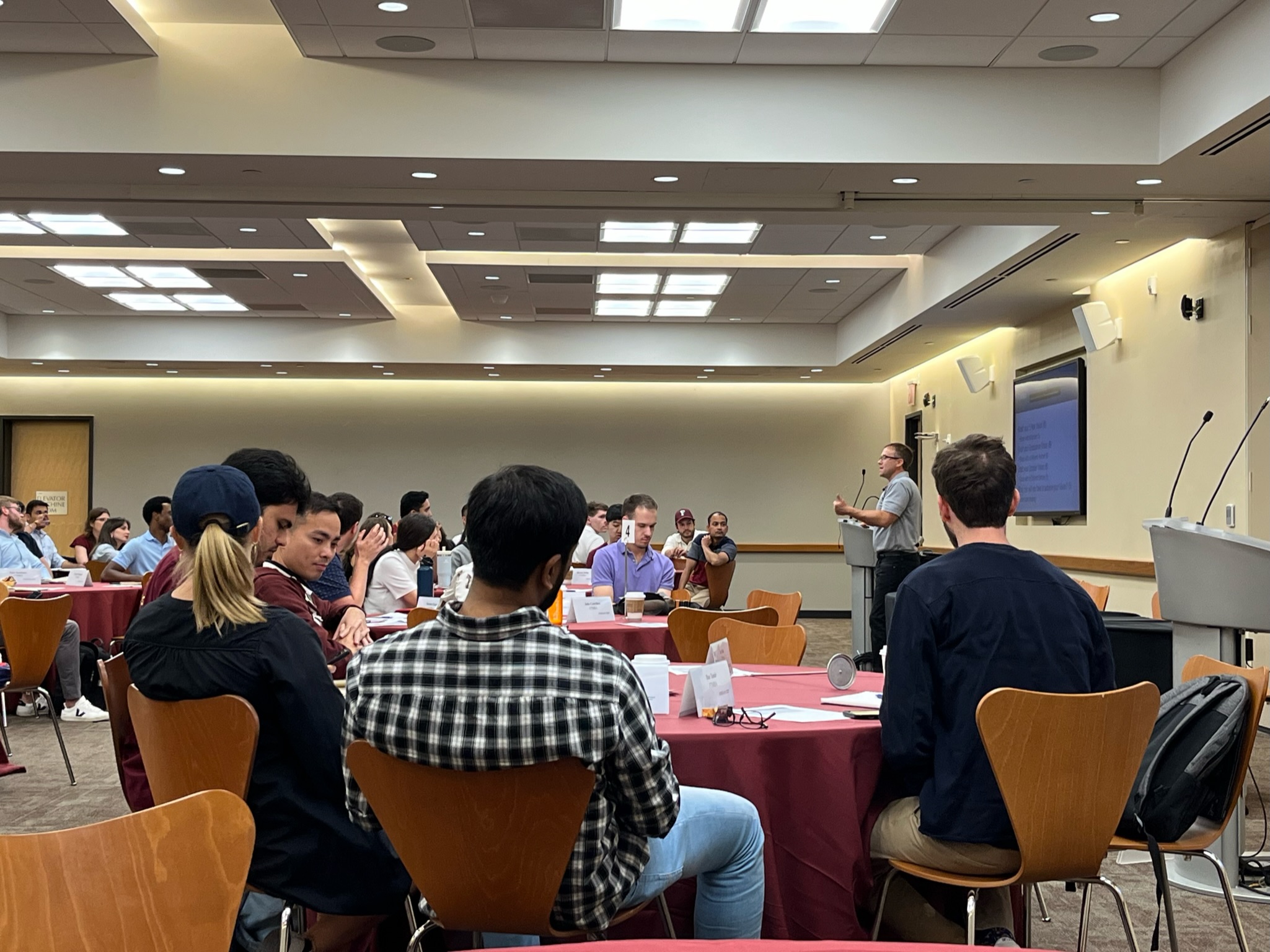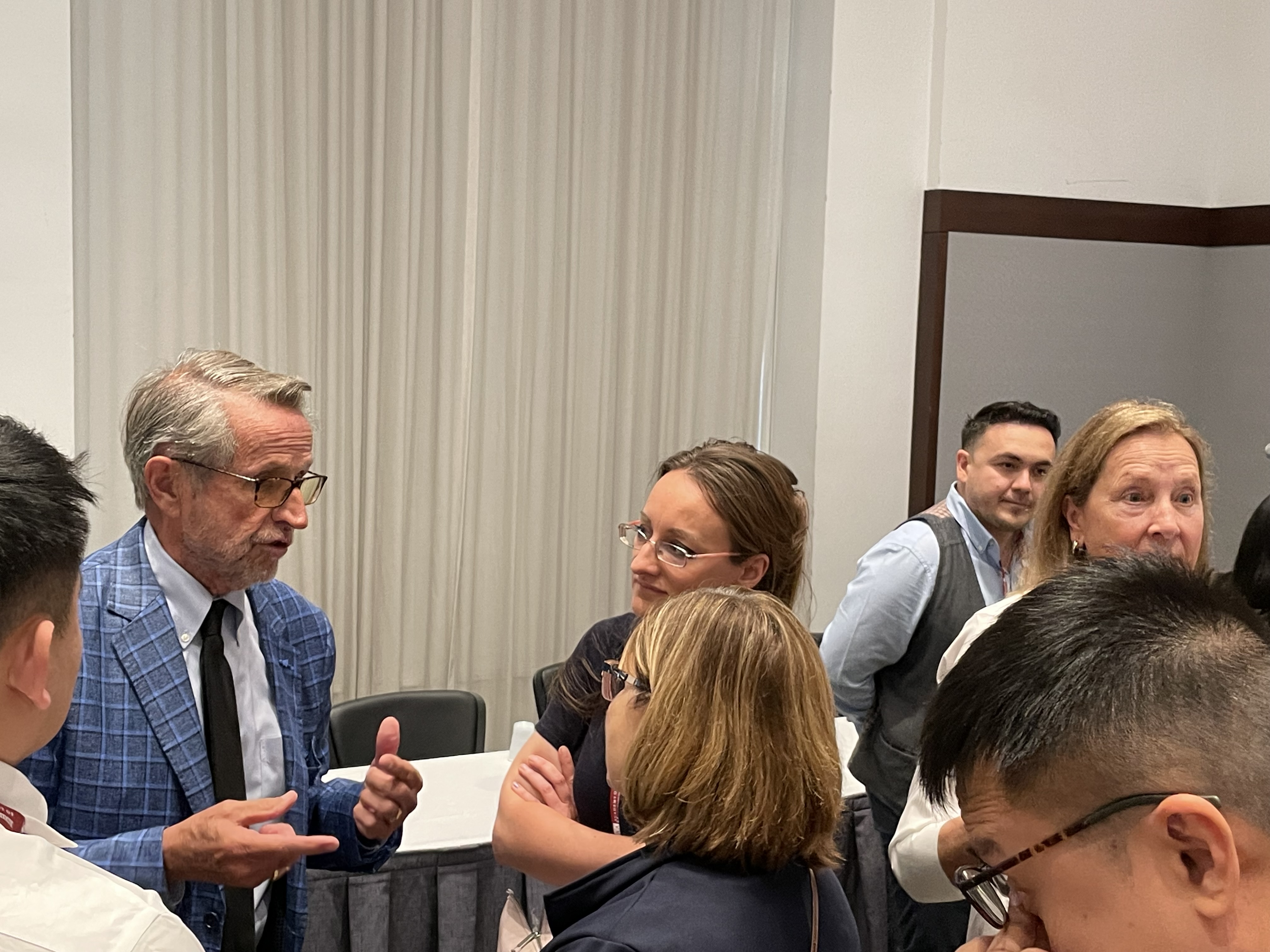We are on a mission.
We know the influence business leaders have on our day-to-day lives.
As we have pointed out many times before, according to research by the CDC, the person you report to at work can be more important to your health than your family doctor. And Gallup recently said that having a job you hate is worse than being unemployed.
At Barry-Wehmiller, our journey from management to leadership has allowed us to see the stewardship of the lives in our care through a different lens. It is now part of our mission to use the experiences and knowledge about creating workplaces where people
feel cared for, valued and part of a shared purpose that we have applied throughout all of Barry-Wehmiller’s businesses and share it with others.
Unfortunately, in many business schools around the world, students are still being taught management, not leadership. We need leaders, not managers, in our organizations today.
We want to help transform business education from institutions that train people to manage into institutions that foster humanistic leaders who honor individual dignity and demonstrate the courage to care for others.

Last week, two members of Barry-Wehmiller’s outreach team, Brian Wellinghoff and David Pickersgill, were invited to facilitate a three-day orientation program at Fordham University’s Gabelli School of Business for incoming MBA students.
Brian and David brought many of the concepts we teach in Barry-Wehmiller University to these business school students.
“We were asked specifically to help them to work on the group dynamics at the start of their course,” David said. “A significant portion of the course is based on group projects. Because incoming students have no previous relationship with each other, it can sometime be difficult to quickly embrace a team dynamics. We addressed this issue in two ways. Firstly, we brought the message of Truly Human Leadership to the group, modelling vulnerability, and emphasizing the importance of human connection in business leadership. It was a wonderful group of
students and you could see them connecting with each other and building trust as the three days went on.
“We also addressed conflict directly, giving tools for effective confrontation, and allowing them to experience a conflict resolution scenario in a role play. A number of students after this said that this was the first time that they had realized
that conflict could be a positive thing, and that in future they would proactively address problems that came up between them and others, rather than just leaving the issue and hoping it would get resolved on its own.”
We have had a relationship with Fordham for a number of years through Michael Pirson, a James Stoner Chaired Professor of Global Sustainability and Humanistic Management at the Gabelli School of Business and Research Affiliate at Harvard University. Michael is also one of our partners
in the Humanistic Leadership Academy, a group consisting of leading university professors and fellow business leaders from around the world determined to change businesses
and organizations by transforming business education to be more human-centered.
Michael was instrumental in giving us the opportunity to present Truly Human Leadership in this setting and Alex Markle, who leads the MBA Program at the Gabelli School, was our sponsor in these events. It was an honor to share with these MBA students the principles
that are taught internally to Barry-Wehmiller team members.
“This was an opportunity right at the start of this MBA course to put human connection and real concern for people at the heart of good business practice,” David said. “We were able to demonstrate that successful business practices are
in harmony with care for the people in the business.”
In addition to the honor of touching the lives of these students at Fordham, this past week, I appeared in two different  sessions at the annual meeting of the Academy of Management. The AoM meeting is “the world's premier event for scholarly
engagement, and the largest gathering of management and organization scholars in the world, bringing global scholars together to form research-based solutions to the world's most pressing challenges, aiming to rebalance – in both research and
teaching -- the perspectives of managers and of the workers they manage.”
sessions at the annual meeting of the Academy of Management. The AoM meeting is “the world's premier event for scholarly
engagement, and the largest gathering of management and organization scholars in the world, bringing global scholars together to form research-based solutions to the world's most pressing challenges, aiming to rebalance – in both research and
teaching -- the perspectives of managers and of the workers they manage.”
The need for our message in this venue was very apparent, judging by the feedback we received and the overwhelming number of people who attended the sessions. On the Sunday of the annual meeting, I appeared on a panel titled “Putting the Worker
Front & Center by Honoring Dignity” alongside Michael Pirson and our friends Raj Sisodia and Donna Hicks to talk about the concept of dignity as the “highest common denominator” and how it can inform "leadership practices that
put the human being front and center.”
On the Tuesday of the meeting, I also gave a presentation, “A Case-Study of Human Flourishing: Barry-Wehmiller, Building a Better World through People, Purpose, Performance” and appeared on a panel discussing “A New Manifesto for Human
Flourishing.”
Over the past year, we have had the honor of sharing our message in more and more important venues throughout the world. Twice, I’ve spoken to audiences affiliated with the United Nations. Brian Wellinghoff has presented our message at the Vatican.
Accomplishing our mission to transform business education will be difficult, but we are working hard to deliver the message of Truly Human Leadership far and wide. These important audiences are proof that our message is valid and needed.
After all, we want everyone’s precious child to feel they are cared for and that they matter. We want to help train the next generation of leaders to help make that a reality.
And create a better world.
If any professors, faculty or business leaders are interested in the Humanistic Leadership Academy and want to sign their manifesto or sign up for webinars or cohorts, Check out their website here.